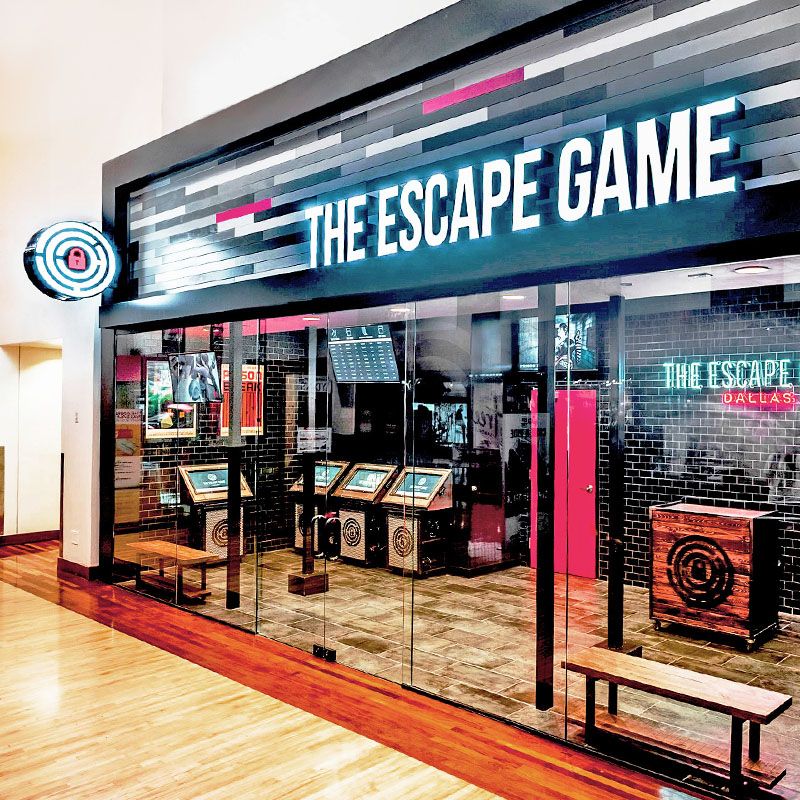Minneapolis Escape Room-- Exciting Challenge Difficulties for All Ages
Group Approaches: Just How to Team up Successfully in an Escape Area
Teams should proactively pay attention to each participant's insights, appoint functions that straighten with specific toughness, and maintain routine check-ins to ensure emphasis and avoid redundancy. By promoting a setting that values cohesion and versatility, groups can dramatically heighten their efficiency and success prices.
Establish Clear Interaction

To promote clear communication, it is vital to mark a central factor of call for information dissemination. Quick, concentrated updates from each team member can maintain the team notified without overwhelming them with details.
Designate Functions Tactically
While clear communication sets the foundation for reliable teamwork, assigning duties purposefully guarantees that each team participant's toughness are utilized effectively. In an escape space circumstance, the time-sensitive and intricate nature of difficulties demands an efficient technique to task delegation. By identifying and leveraging individual proficiencies, groups can maximize their analytic capacities and enhance general efficiency.
First, evaluate the special abilities and attributes of each participant. For instance, someone with a keen eye for information could stand out in discovering hidden things, while a logical thinker might be better fit to solving challenges - best escape room. It's just as important to have a leader who can manage progression, handle the timeline, and make definitive calls when required. This function often calls for strong organizational and interpersonal skills.
2nd, make certain that duties are versatile and adaptable. As brand-new obstacles arise, the team should be able to pivot, reapportioning tasks as called for. This flexibility aids keep momentum and prevents traffic jams that can happen due to stiff role projects.
Inevitably, a strategic method to function job not only maximizes the toughness of each group member yet also fosters a natural environment, driving the team in the direction of an effective getaway.
Use Diverse Skills
Identifying and utilizing the varied abilities within your team can substantially raise your performance in an escape room. Each staff important source member brings distinct toughness to the table, and efficiently leveraging these capacities can quicken analytic and improve overall efficiency. For instance, a team member with solid logical abilities could stand out at understanding intricate codes or patterns, while one more with eager observational abilities might rapidly spot concealed ideas that might ignore.
Urge team members to articulate their insights and concepts without delay, making certain that all possible services are considered. Additionally, appointing tasks that line up with each participant's staminas can avoid bottlenecks and guarantee that progress is continuous.
In addition, diversity in skills often equates to diversity in assuming styles, which is invaluable in a retreat area setup. While some difficulties may call for logical reasoning and precision, others could benefit from imaginative and association of ideas. By recognizing and leveraging this variety, teams can resolve a more comprehensive variety of difficulties better, consequently raising their possibilities of a successful getaway.
Manage Time Effectively

Determine visible puzzles and divide tasks based on team members' strengths, making certain that no one is still. This practice can help keep the group focused and stop time from slipping away unnoticed.
Furthermore, stay clear of tunnel vision. If a puzzle is taking as well long, rotate staff member or relocate on to an additional difficulty, returning later on with fresh point of views. Interaction is critical-- maintain check it out every person upgraded on fixed challenges and staying jobs to prevent repetitive efforts.
Lastly, use any hints or ideas moderately yet tactically - best escape room. Understanding when to request for assistance can conserve beneficial time. By sticking to these time management principles, teams can dramatically improve their chances of a successful and delightful escape space experience
Debrief and Show
Reflection is an important element of team development and enhancement in the context of escape spaces. As soon as the challenge is finished, whether efficiently or not, it is critical for the group to participate in a structured debriefing session. This process enables team members to evaluate their efficiency, identify strengths, and identify locations for renovation.
Begin the debrief by discussing what went well. Highlight particular instances of efficient communication, analytic, and partnership. Identifying these positive habits reinforces them and encourages their repetition in future obstacles.
Next, resolve the obstacles ran into. Discuss minutes of confusion, miscommunication, or ineffective strategies. Encourage an open and constructive discussion where team participants can share their viewpoints without anxiety of objection. This promotes a culture of constant improvement and knowing.
Conclusion
In conclusion, effective cooperation in a getaway room is asserted upon clear interaction, strategic duty projects, the reliable usage of varied skills, and efficient time monitoring. By producing a cohesive and flexible team setting, the probability of successfully fixing puzzles and achieving the goal of escaping the space is dramatically improved.